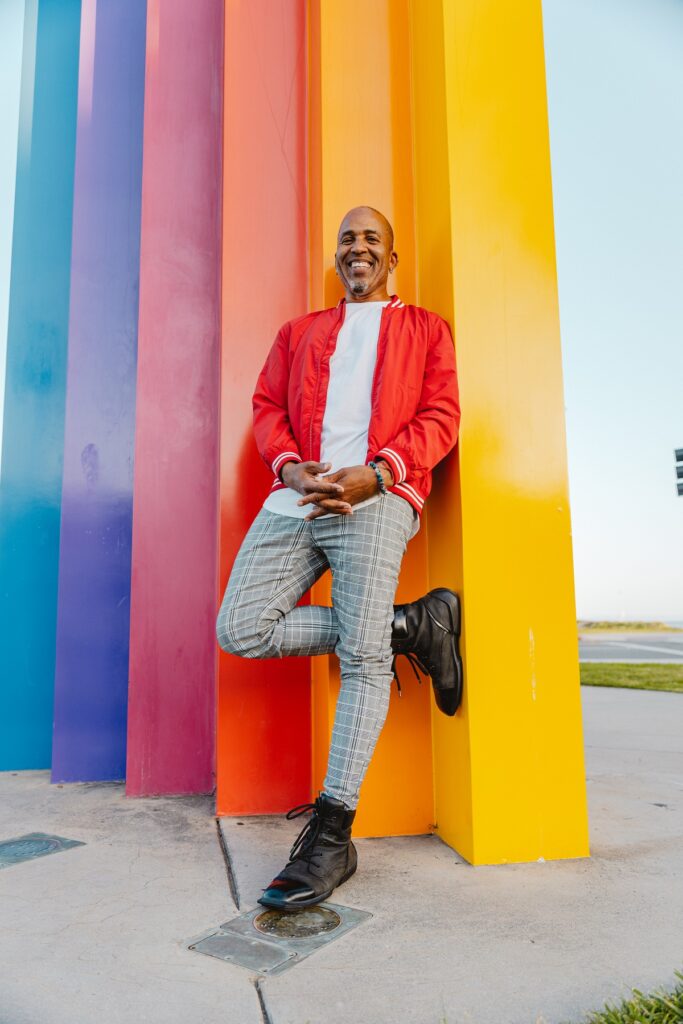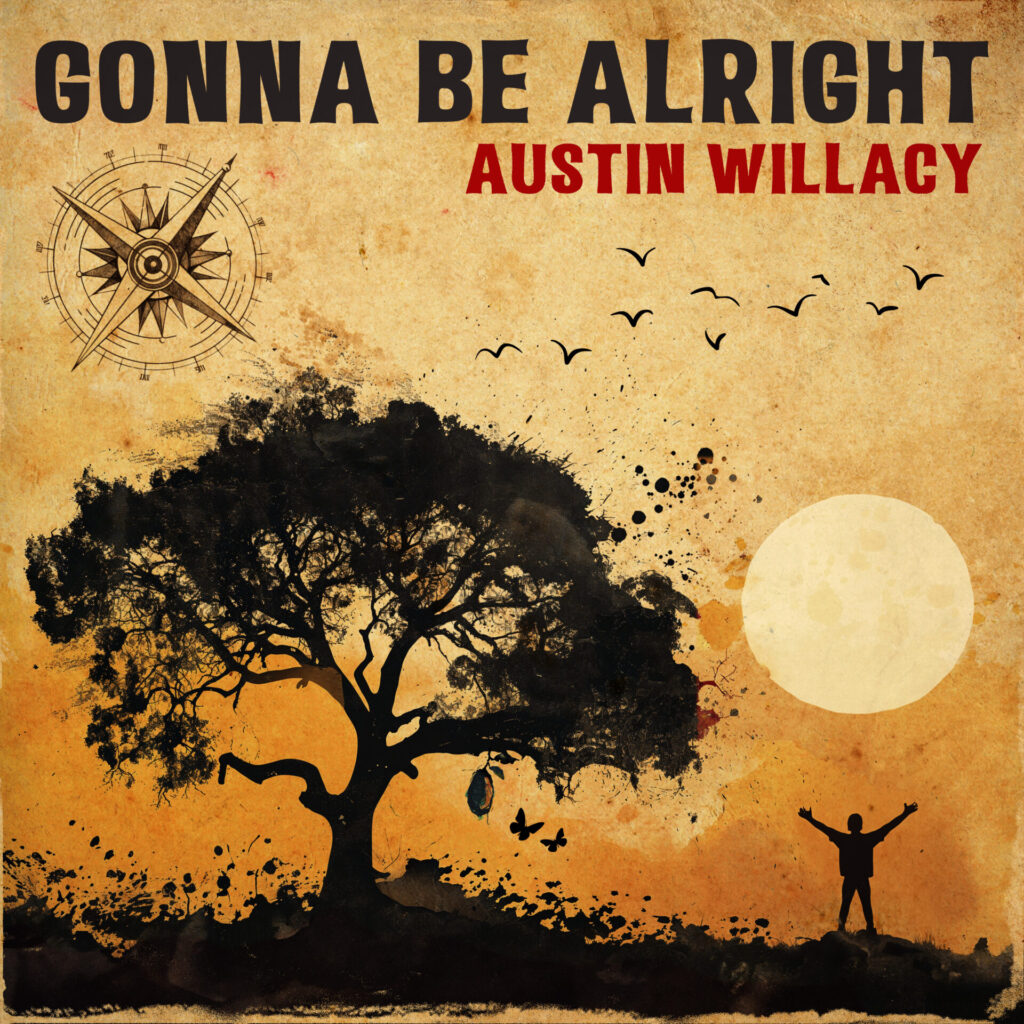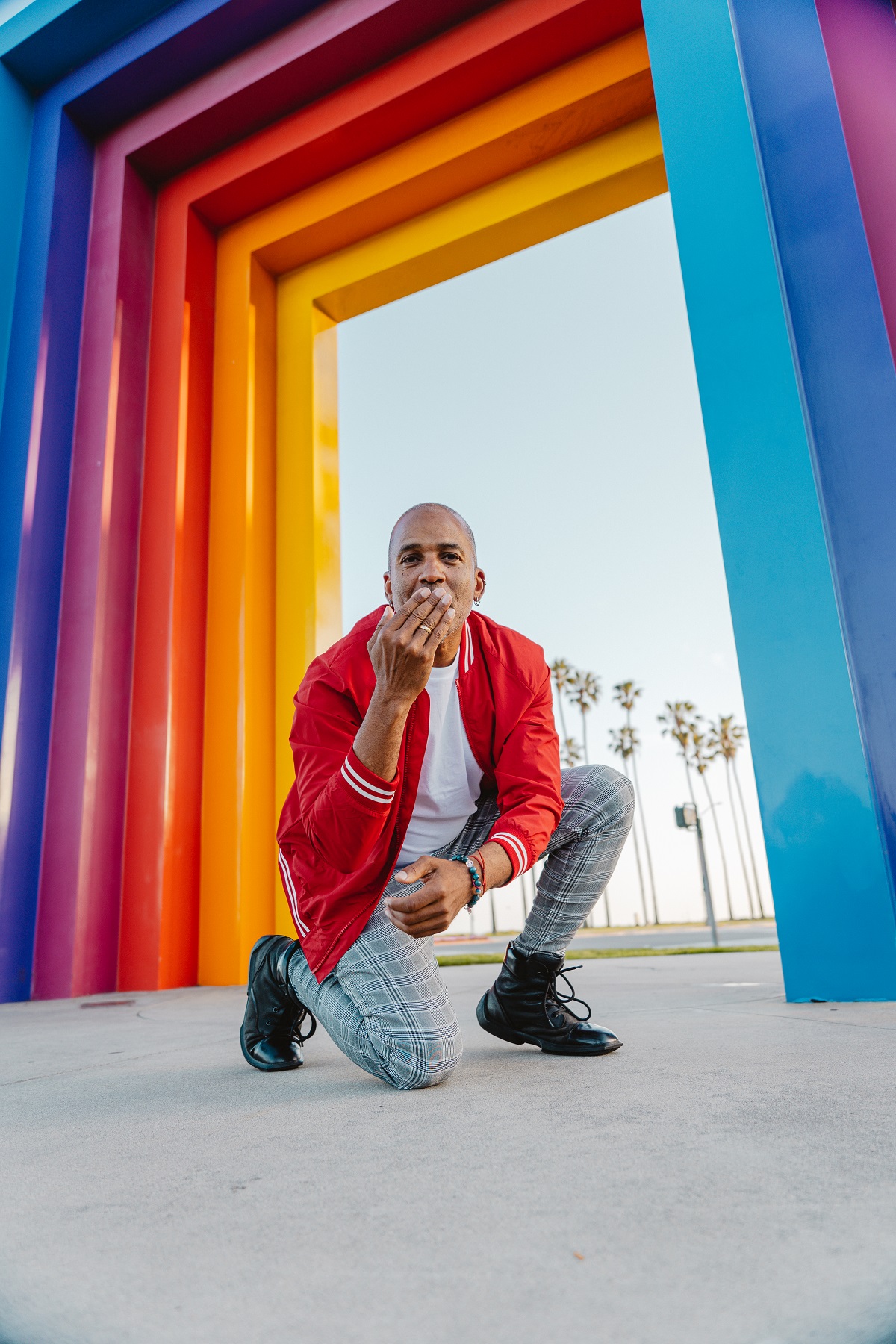The five songs on Austin Willacy’s most recent EP, “Gonna Be Alright,” which includes the singles “Saw You in the Light” and “Gonna Be Alright,” embrace hope in the face of adversity, tenacity, devotion to dignity, and the beauty of lessons discovered by loss. We cordially encourage you to explore Austin’s music further with this personal offering, which is his debut EP and sixth studio album. Check out the exclusive interview below:

1. Can you tell us a bit about where you come from and how it all got started?
AUSTIN WILLACY: Silly as it may sound, I think it all got started because of a crush and confirmation bias. I was raised in Shaker Heights, Ohio. You may have heard of it because of Little Fires Everywhere, by Celeste Ng.I grew up listening to the blues, funk, soul, and old school R&B my parents loved and on pop radio, MTV, and VH1. I took piano lessons as a kid, but I lost interest by 7th grade because I didn’t really have a choice in the music I had to play. I played saxophone from 5th-9th grade. At the end of 9th grade I realized I wasn’t going to be any great shakes on the sax and that I’d rather have the practice time to focus on other things. I’d officially quit all my instruments at age 14. At the end of 9th grade I was smitten with a girl named Robyn. We had a lot of classes together, and I often had a hard time concentrating because I was thinking about her. She never indicated she had any romantic interest in me, but it didn’t matter; my adoration endured. At the end of 11th grade, Robyn heard me humming along with a song and informed me that I was a tenor and that I had to join the chorus. After repeatedly informing her that I didn’t sing I realized that she was suddenly very interested in talking to me, which felt great! I’d been hoping she would notice me for years, and now, all of a sudden, she did. For my singing?! Um..what?! Anyway, Robyn applied enough pressure–which I transmuted into romantic interest–that I joined the chorus. There were so few tenors in the chorus that–green as I was–I was put into an octet to perform a barbershop song, Vive L’amour, for an important performance. I was blown away by the energy, the richness, the sound, and the feeling I had singing that one song. We loved it so much we sang it over and over. When I went to college I saw the Dartmouth Aires perform during orientation week and needed to be in that group. I was invited to join the Aires and was so inspired by the music we were making that I decided to take music theory classes so I’d be able to arrange music for us to sing. Suddenly, I really wished I hadn’t quit piano.
2. Did you have any formal training or are you self-taught?
AUSTIN WILLACY: I took piano lessons from age 7-11, music theory classes in college, and bass lessons for 2 months. I’m self-taught as a singer, arranger, guitarist, engineer, and producer. That said, I’ve had the privilege of soaking up wisdom and being influenced by a lot of very talented people.
3. Who were your first and strongest musical influences?
AUSTIN WILLACY: Stevie Wonder, Bill Withers, James Brown, and Earth, Wind & Fire were family favorites when I was younger. I’m grateful to my parents for having such great taste in music. I also listened to a lot Top 40 and was in wonder at the singing, performance ability, musicianship, and pervasive auras of Michael Jackson, Prince, The Police, Sting, and Peter Gabriel.
4. What do you feel are the key elements in your music that should resonate with listeners, and how would you personally describe your sound?
AUSTIN WILLACY: The key elements in my music I hope resonate with listeners are a combination of soulful vocals, harmony, grooves, great hooks, and supportive, uplifting messages. I think the pillars of my sound are a fusion of blues, soul, funk, acoustic pop, and pop rock. Some songs lean more heavily onto one of these than others, but I think these are the components that feel essential.

5. What’s your view on the role and function of music as political, cultural, spiritual, and/or social vehicles – and do you try and affront any of these themes in your work, or are you purely interested in music as an expression of technical artistry, personal narrative, and entertainment?
AUSTIN WILLACY:
I believe music serves on all of the fronts you mention. Some of my songs are explicitly political, some are cultural commentary or speak to religion and spirituality. I just saw “One Love,” the Bob Marley movie. In the film, Rita Marley–his wife, referring to the attempts on his life–said something like “Don’t let what they did to you define who you are.” Bob Marley’s music has been a global call to action for almost 50 years. It has also been a global call to love, and to oneness. I believe sometimes something beautiful is enough to move people to act in ways they might not if they were preached to.
6. Do you feel that your music is giving you back just as much fulfillment as the amount of work you are putting into it or are you expecting something more, or different in the future?
AUSTIN WILLACY:
Wow. Tough question! I’ve never thought of it that way. Once I started making music I knew I had to keep making music. I’ve been writing and recording for a while and have had the massive privilege of being a performer for many years. In the past few years I’ve moved more deeply into production. So…I get the rush that comes from being in a flow state as a creator, both as a writer and producer, and the honor of being part of an energy cycle with live audiences. I feel very empowered as an artist right now, which is amazing! And, because I pay for my own health insurance and don’t have a 401k, I would be happy to have more savings. Or maybe to have my bank account as empowered as I feel as an artist. =)
7. For most artists, originality is first preceded by a phase of learning and, often, emulating others. What was this like for you? How would you describe your own development as an artist and music maker, and the transition towards your own style, which is known as POP?
AUSTIN WILLACY: In a way, I feel my artistic evolution has been a byproduct of the instruments I started focusing on when I started falling for music. Singing was first. When I started singing I started out trying to sound like whatever song was on the radio or on MTV, so I was imitating a wide range of male and female voices spanning several genres. I loved it! In retrospect, I recognize that it was a fascinating way to explore my voice, as a singer. I was taking in the melodies and harmonies of all the songs I was hearing and soaking up all the lyrics. I was also doing my best to make all of the sounds I was hearing. I fell in love with singing and developed pretty quickly, all things considered. I started having thesefeelings that I needed to express, and even though I didn’t have any idea what I was doing, I started writing lyrics and singing them to find the release for those feelings when they came. I wasn’t consciously imitating anybody, and I was very shy about sharing what I came up with, at first. At a certain point, I felt a little constrained by the fact that I couldn’t play an instrument with which to accompany myself, so I reached out to a piano playing friend who also wrote songs and he helped put chords to two of my first songs. It was awesome! And, it seemed like magic, like spells I didn’t know how to cast on my own. At the same time, I’d been singing in rock bands that performed at parties on campus. I discovered that I’d have a lot more say in what songs we learned if I played an instrument, so I decided to learn bass, which was an instrument I’d always loved. Suddenly, I was fixating on basslines and the way that bass could drive a song, what it felt like when the bass dropped out or moved in harmony with the melody, and what types of rhythms I gravitated to. When I started writing music regularly I always started with the lyrics. I felt like I wanted to make sure that the lyrics expressed exactly what I wanted to say. I soon realized that my lyrics explained things so thoroughly that they weren’t engaging, because they didn’t really leave room for the listener’s experience. Then, I joined The House Jacks, a professional a cappella group, who had an absolutely incredible beatboxer. So I started focusing on drums, drum sounds, drum grooves and the incredible interplay between drums and bass. A few years later, I switched from bass to acoustic guitar because I wanted more harmonic information and needed something more portable than a heavy bass and a big-assed amp to take on tour. Because I was touring with an a cappella group, I wasn’t playing guitar with an actual bass player, drummer, or other guitar player, but I was trying to bring as many of those elements into my guitar playing as I could. I wanted people to be able to feel the groove and hear the harmony I had in mind while I was playing a song on guitar, even if was just me.
8. Could you describe your creative processes? How do usually start, and go about shaping ideas into a completed song? Do you usually start with a tune, a beat, or a narrative in your head? And do you collaborate with others in this process?
AUSTIN WILLACY: My creative process varies pretty widely. I usually start with whatever feels most magnetic sometimes that’s a riff or a piece of a melody. Sometimes I’m playing guitar and a chord progression comes to mind or a lyrical idea will come to me. I try to listen to whichever one of those things comes calling. In some ways it’s like a thread I try to pull and follow as far as it’ll take me. I’ve come to understand there’s a certain magic of the moment with that that original flash of inspiration. It’s something that I have to tune in to in that moment in some meaningful way or else I can’t find it again later. It’s almost like it’s the key to a magic castle that changes locations that’ll stay in one place if I open the door. If I do, then I can go in and can return to it once I know where it is but if I don’t use the key when it’s right there then I can never find it again.
9. What has been the most difficult thing you’ve had to endure in your life or music career so far?
AUSTIN WILLACY: I think the most difficult things I’ve had to endure during my music career are betrayal by a then-trusted collaborator, the disappointment of amazing possibilities that never quite became actualities, and periodically grappling with trying to find hope in darker, heavier moments, whether they be within me, around me, or in the world more broadly…
10. On the contrary, what would you consider a successful, proud or significant point in your life or music career so far?
AUSTIN WILLACY: Ooh! A significant point in my life was when I recognized the only way I was going to be able to feel self-actualized as a musician was if I redefined what success meant for me versus how US culture defines it more broadly. I realized that if I was going to walk in the world as a musician and to make life choices that allowed me to continually prioritize music it was inappropriate for me to embrace the same standard for success I would if I were a doctor or lawyer or investment banker.
KEEP IN TOUCH:
FACEBOOK | INSTAGRAM | SPOTIFY | WEBSITE | YOUTUBE

